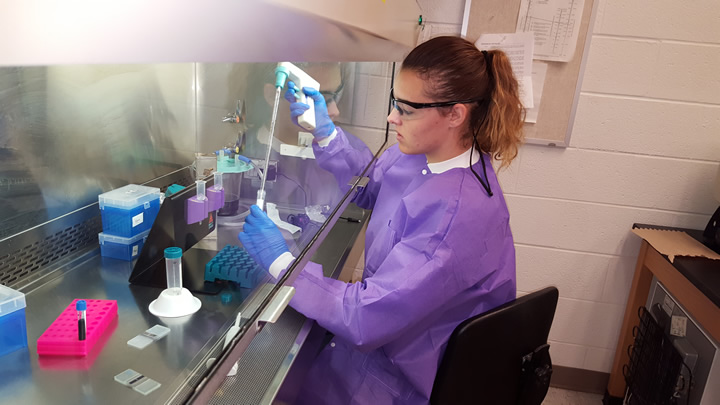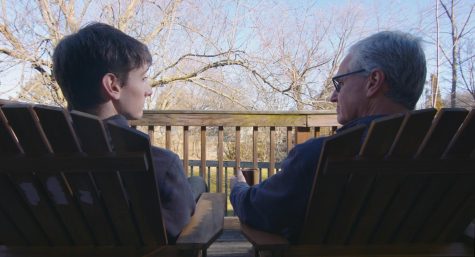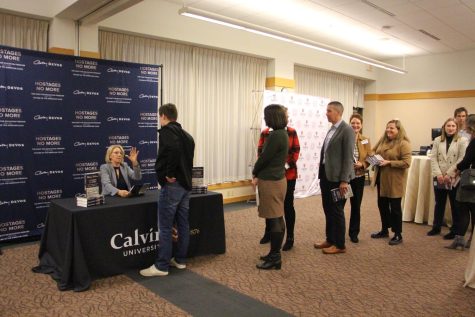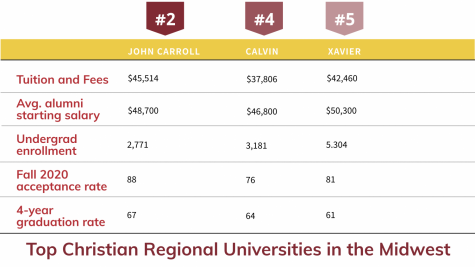Vision 2029: Panel advocates research for unity and justice
Calvin students and faculty conduct research as part of the vision for scholarship at Calvin. Photo courtesy Calvin.edu.
A panel of three Calvin faculty members considered how Calvin’s research and scholarship goals fit the college’s mission and vision Monday afternoon.
The event was the third of a four-part series of discussion panels held to encourage community discussion about Calvin’s vision. The Vision 2029 team — comprised of 14 faculty and administrators and one student — will consider the information gathered at these panels as they formulate a vision statement for Calvin College. Earlier panels have considered new educational platforms Calvin could introduce in the future and whether Calvin should become a university.
Political science professor Kevin den Dulk hosted the panel, which was well attended by faculty, staff, students, alumni and administrators and took place in the Willow Room of the Prince Conference Center.
Panelists included Matt Walhout, physics professor and dean of student research and scholarship; Gail Zandee, nursing professor; and Kristin Du Mez, history professor.
When asked about what should make Calvin’s research and scholarship distinct, panelists suggested an increase in interdisciplinary projects. Walhout said Calvin currently promotes interdisciplinary learning through faculty development opportunities as well as centers and institutes, but said Calvin could do more to expand such opportunities.
Du Mez said we should acknowledge and take advantage of Calvin’s rare ability to play mediator in the current polarized context.
“We have a foot in the secular academy and the Christian subculture. We’re fluent in the discourses of the liberal elite and of the local church. Many of us are familiar with rural and small-town America and global academic networks. In many ways, we are uniquely positioned to address an increasingly polarized culture. Where else can a vibrant, communal, faith-based community conversation about things that matter happen?” said Du Mez.
She also suggested that Calvin’s scholarship and research could contribute to “counter-cultural discourse marked by civility, honesty, humility and empathy,” and called Calvin scholars to build platforms from which to engage with the public.
When asked how scholarship should reflect Calvin’s mission, Zandee said she would like to see research and teaching come together in classrooms and curriculums. As an example, Zandee said, the nursing department does research about and addresses the top health concerns in the local communities.
“We’re unified as a faculty, addressing core issues in the city, and our scholarship has just exploded under this sort of strategy,” said Zandee.
Panelists also discussed whom Calvin’s research and scholarship should serve. All agreed that scholarship should ultimately serve God’s Kingdom, and should especially empower the academy, the church, the local community, the global community and marginalized members of society.
“If we care about the course of spiritual life and the Kingdom of our Lord, we have to care about justice, and therefore about public opinion, and therefore about ideas that give shape to social realities,” Walhout said. “No matter our discipline, I think one of our primary callings is to steer those social realities in the direction of justice, peace and spiritual flourishing.”
The Vision 2029 team also hosted a panel on Thursday, Nov. 16 about Calvin’s reformed identity, academic excellence and diversity. To learn more about Calvin’s visioning, visit the Calvin 2029 Community Forum online at http://www.calvin.edu/vision-2029/.






